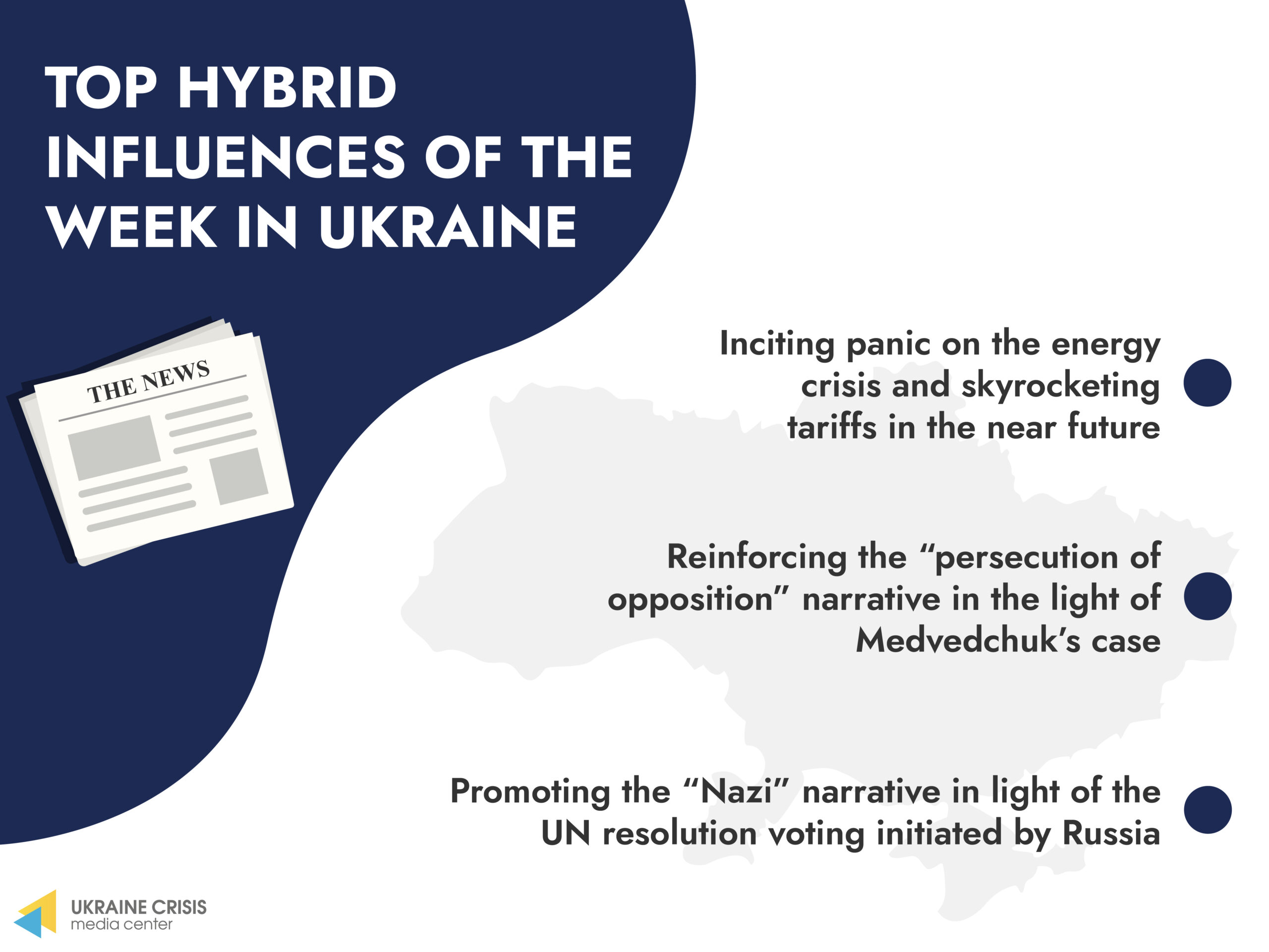Pro-Kremlin forces exploit the opportunity to disseminate panic in Ukraine in the light of the energy crisis caused by the lack of natural gas and coal. Telegram channels go as far as to indirectly incite protests in Ukraine because of the tariffs that are soon to skyrocket. It should not be denied that Ukraine is in a challenging situation this winter, which is part of the larger crisis on the European market, aggravated greatly by Russia’s gas politics and the Nord-Stream-2-related blackmail. However, the Kremlin’s agents clearly use the crisis to undermine the situation in Ukraine from within, aiding Russia’s escalating aggression.
Opposition Platform – For Life party, the key pro-Kremlin party in Ukraine, and media loyal to it have again intensified sharing the “political persecution of opposition” narrative. This was spawned by the court ordering Viktor Medvedchuk, the party’s leader and Kremlin’s ally charged with state treason, to remain under house arrest. Despite the charges, Medvedchuk continues sharing disinformation narratives about Ukraine, including via Russian propagandistic channels.
Pro-Russian actors actively promoted the narrative about Ukraine as a “Nazi state”. This is regarding the resolution Russia initiated against the glorification of Nazism. Ukraine and the USA have traditionally opposed it, recognizing the initiative as Russia’s veiled attempt to legitimize Russian disinformation narratives about Ukraine and other neighboring countries. Of course, the fact that the US joined the vote against the resolution gave the Kremlin’s proxies another opportunity to push the “external governance” narrative.



